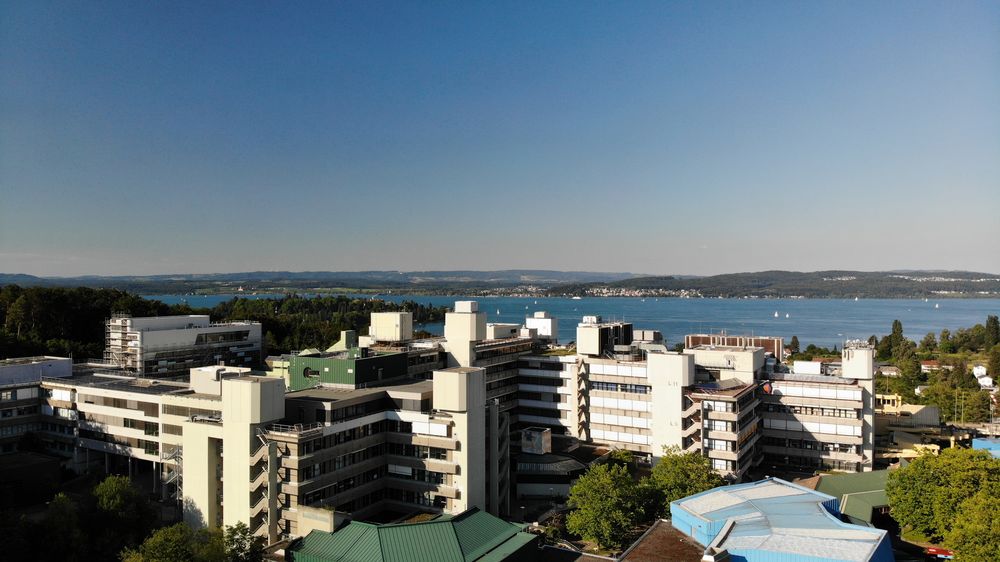
New Collaborative Research Centre (SFB) approved
German Research Foundation (DFG) approves Collaborative Research Centre SFB 1432 “Fluctuations and Nonlinearities in Classical and Quantum Matter beyond Equilibrium” at the University of Konstanz
The German Research Foundation has announced the approval of Collaborative Research Centre SFB 1432 “Fluctuations and Nonlinearities in Classical and Quantum Matter beyond Equilibrium” at the University of Konstanz. The Collaborative Research Centre focuses on the fastest and smallest spatio-temporal processes far from equilibrium: It examines physical and chemical systems, whose behaviour is largely characterized by fluctuations or strongly nonlinear interactions. Examples are quantum fluctuations, electron transport chains, and electron spin or colloidal particle fluctuations. Funding for the SFB of about € 13.7 million is expected. The initial duration is four years, with the possibility of an extension for a further eight years.
“The approval of SFB 1432 is a success for the entire University of Konstanz, especially for its research priority ‘Nano and Materials Science’. With its focus on physical phenomena beyond equilibrium, the new SFB will further develop this important field and give significant impetus to research beyond Konstanz too. My sincerest congratulations to everyone involved,” says Professor Malte Drescher, Vice Rector for Research and Academic Staff Development at the University of Konstanz.
Far from equilibrium
So far, research has mostly used statistical averaging to study the most elementary and fastest processes in nature, such as the behaviour of single electrons. On a microscopic scale, however, such systems in reality often deviate considerably from a temporal mean or a simple linear behaviour. They fluctuate around the mean, and temporarily – for ultrashort moments – create states of extreme disequilibrium. The work conducted within SFB 1432 focuses specifically on such aspects of the disequilibrium of physical quantities, including non-Gaussian statistics, extreme nonlinearities, quantum fluctuations and entanglement as well as what are known as dissipation-induced dynamic processes (the conversion of thermal energy into the directed motion of a physical system). “In all these cases, fluctuations lead to new and surprising physical phenomena and innovative applications,” explains Professor Wolfgang Belzig, spokesperson for the Collaborative Research Centre and professor for Quantum Transport Theory at the Department of Physics of the University of Konstanz.
Combination of classical and quantum physics
“A unique feature of this Collaborative Research Centre is the combination of different approaches from classical and quantum physics,” says Belzig, going into more detail: “This allows us to map out not only commonalities but also differences in fluctuations and nonlinear behaviour in various areas of physics – including soft matter, quantum transport, magnetism, nanomechanics and micromechanics as well as in the area of ultrafast physics.”
SFB 1432 is part of the research priority ‘Nano and Materials Science’ at the University of Konstanz and makes use of the university’s research infrastructures to produce extremely small structures, even down to the molecular level, and to study ultrafast phenomena that occur in a fraction of a millionth of a billionth second. Researchers from experimental and theoretical physics, physical chemistry and mathematics are working together across disciplines on a total of 19 sub-projects in the framework of the Collaborative Research Centre. There is also collaboration with the University of Göttingen and the Technical University of Munich. In addition, an Integrated Research Training Group “Fluctuations and Nonlinearities” (FaN) is supporting the Collaborative Research Centre in the area of doctoral training with a programme tailored specifically to its doctoral researchers.
Key facts:
- German Research Foundation (DFG) approves Collaborative Research Centre SFB 1432 “Fluctuations and Nonlinearities in Classical and Quantum Matter beyond Equilibrium”.
- Expected funding of about € 13.7 million. The exact sum will be announced on 10 December 2020.
- Funding is initially for four years, with the possibility of an extension for a further eight years.
- Start of funding: 1 January 2021
- Spokesperson for SFB 1432: Professor Wolfgang Belzig, professor for Quantum Transport Theory in the Department of Physics at the University of Konstanz.
- 19 sub-projects at the University of Konstanz in collaboration with the University of Göttingen and the Technical University of Munich as well as an Integrated Research Training Group “Fluctuations and Nonlinearities” (FaN).
